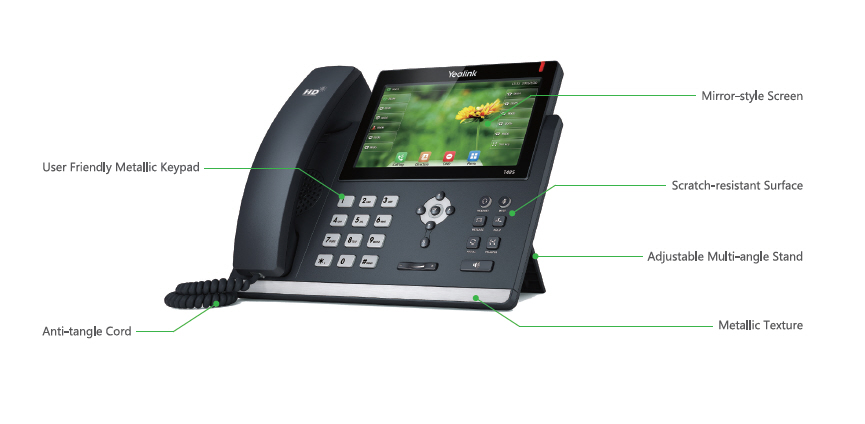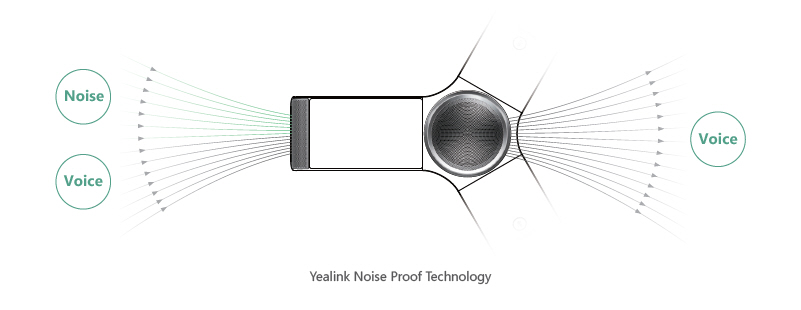Introduction
In an era where communication is paramount, the transition from traditional telephony to Voice over Internet Protocol (VoIP) systems has revolutionized how businesses interact. However, with great innovation comes significant responsibility, especially regarding security. The importance of regular audits for securing your VoIP system cannot be overstated. As companies increasingly rely on VoIP phone services for their daily operations, understanding the vulnerabilities and ensuring robust security measures becomes essential.

What is VoIP Phone Service?
Voice over Internet Protocol (VoIP) phone service allows users to make voice calls using the internet instead of traditional telephone lines. This technology converts sound into digital data, transmitting it over IP networks. With features like cost-effectiveness, scalability, and flexibility, VoIP has become a popular choice for businesses worldwide.

Why Regular Audits Matter
Regular audits serve as a proactive approach to identifying potential weaknesses in your VoIP system. These audits help ensure that your communications remain private and secure by examining various aspects of your system's integrity.
Understanding Security Risks
The growing reliance on digital communication has made VoIP systems attractive targets for cybercriminals. Data breaches can lead to financial losses and damage reputations. Regular audits help identify these risks before they escalate into full-blown crises.
Enhancing Compliance
Many industries are subject to regulations concerning data protection and privacy. Regular audits can help ensure compliance with legal requirements, safeguarding sensitive information from unauthorized access.
Key Components of a VoIP Audit
To conduct a thorough audit of your VoIP system, it’s imperative to focus on several key components:
Network Security Assessment
A comprehensive network security assessment examines firewall configurations, intrusion detection systems, and overall network architecture. Analyzing these components helps identify vulnerabilities that could compromise the integrity of your communications.
Call Quality Analysis
Monitoring call quality is crucial not only for user experience but also for identifying potential issues affecting performance. A regular review can highlight problems such as jitter, latency, and packet loss.
Configuration Review
Misconfigurations can leave your system open to attacks; thus, regularly reviewing settings within your VoIP equipment ensures optimal performance without compromising security.
The Process of Conducting an Audit
Conducting a successful audit involves several steps:
Defining Objectives: Establish clear goals regarding what you aim to achieve through the audit. Gathering Data: Collect relevant information about hardware setups and software configurations. Analyzing Results: Evaluate the collected data against established benchmarks. Implementing Changes: Based on findings, make necessary adjustments to enhance security. Documenting Findings: Maintain records of the audit results for future reference.Common Vulnerabilities in VoIP Systems
Understanding common vulnerabilities is critical in ensuring comprehensive protection:
- Eavesdropping: Cybercriminals may intercept voice conversations if encryption protocols are not in place. Denial-of-Service Attacks: Attackers can overload a system with traffic, disrupting services. Unauthorized Access: Weak passwords or lack of access controls can result in unauthorized users gaining entry to sensitive information.
Best Practices for Securing Your VoIP System
To bolster security measures effectively, consider implementing these best practices:

Use Strong Passwords
Enforcing strong password policies minimizes the risk of unauthorized access significantly.
Enable Encryption
Utilizing end-to-end encryption protects voice data during transmission from potential eavesdroppers.
Implement Network Segmentation
Separating voice traffic from other types of data traffic enhances security by limiting exposure to threats.
The Role of Technology in Auditing
Emerging technologies play an integral role in streamlining auditing processes:
- AI-Powered Tools: Utilizing artificial intelligence helps automate monitoring tasks and flag anomalies efficiently. Cloud-Based Solutions: Cloud services offer scalable storage options for audit documentation while providing remote accessibility.
Training Employees on Security Practices
Employee training is vital when it comes to maintaining a secure environment:
- Conduct regular workshops focusing on phishing awareness and safe usage practices. Establish clear guidelines around handling sensitive information related to company communications.
The Importance of Regular Audits for Securing Your VoIP System
Routine audits not only enhance security but also foster accountability within organizations. By regularly evaluating their systems' effectiveness against evolving threats and compliance requirements, businesses can maintain their reputation while ensuring seamless communication channels among employees and clients alike.
Frequently Asked Questions (FAQs)
What Is the Frequency Recommended for Conducting Audits?
Ideally, businesses should conduct formal audits at least once every year; however, more frequent assessments may be necessary depending on changes within the organization or emerging threats in the landscape.
Can Third Parties Be Involved in Auditing Processes?
Yes! Engaging third-party auditors brings an outsider’s perspective that may uncover vulnerabilities overlooked internally while providing expertise tailored specifically toward enhancing cybersecurity measures associated with VoIP systems.
What Should I Do If Vulnerabilities Are Found During An Audit?
If vulnerabilities are uncovered during an audit process—act quickly! Prioritize addressing issues based upon severity; remediate them immediately where possible while documenting actions taken towards resolution efforts moving forward—future audits will benefit greatly!
How Do I Ensure My Employees Follow Security Protocols?
Keep communication lines open! Foster awareness through ongoing training sessions that involve interactive discussions centered around best practices & provide updates regarding new threats/changes within protocols—help cultivate a culture focused on protecting sensitive information collectively!
Is Encryption Necessary For Every Business Using VoIP Services?
Absolutely! While some smaller organizations might underestimate its necessity—encryption serves as one fundamental measure any business should implement regardless of size since it effectively safeguards against interception risks associated with transmitted voice data!
Will My Company Save Money By Switching To A VoIP System?
Typically yes! Organizations often experience substantial savings when adopting this technology due largely due reduced long-distance calling costs alongside lowered overhead expenses linked directly toward traditional telephony infrastructures—but remember quality must always come first!
Conclusion
The importance of regular audits for VoIP Phone Service securing your VoIP system cannot be emphasized enough in today’s interconnected world where cyber threats loom large over every facet of business operations—especially those relying heavily on efficient communication channels like those provided by modern-day Voice over Internet Protocol services! By incorporating routine assessments into standard operating procedures while adhering closely towards established best practices—organizations not only protect themselves against malicious attacks but also enhance overall performance metrics across their entire workforce! Start prioritizing these crucial evaluations today; let’s pave the way toward a safer tomorrow together!
This article provides a comprehensive overview focusing on "The Importance of Regular Audits for Securing Your VoIP System," emphasizing both security protocols needed as well as practical steps organizations can take moving forward—all while demonstrating authority within this critical sector surrounding contemporary telecommunications technology standards!